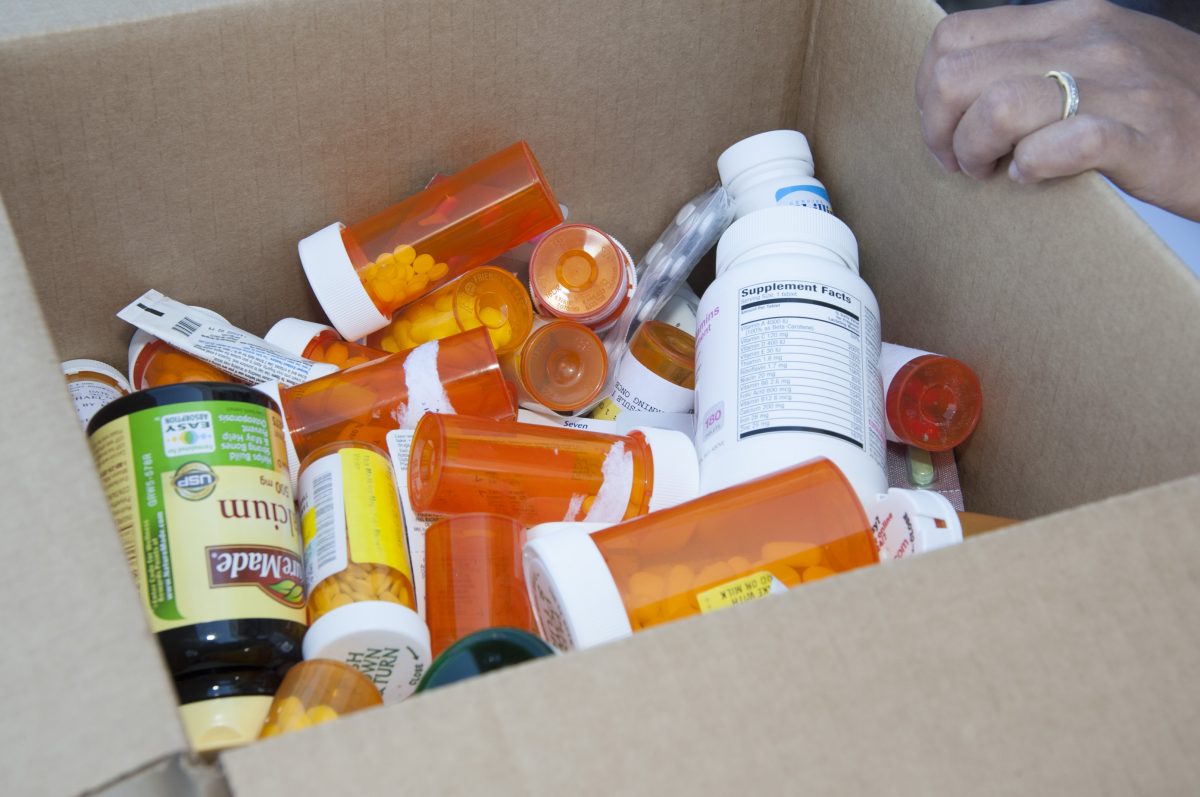April 29, 2017 – 10AM to 2PM
This year’s National Prescription takeback day will be held on April 29, 2017 between 10:00am and 2:00pm.
The National Prescription Drug Take Back Day aims to provide a safe, convenient, and responsible means of disposing of prescription drugs, while also educating the public about the potential for abuse and medications.
The 2016 Prescription take back event was the most successful in recent years since its inception in 2010. Last year illustrated Americans’ understanding of the value of this service.
In 2016, the DEA partnered with over 4,200 of its state, local, and tribal law enforcement partners collected 893,498 pounds of unwanted medicines—about 447 tons—at almost 5,400 sites spread through all 50 states, beating its previous high of 390 tons in the spring of 2014 by 57 tons, or more than 114,000 pounds.
2016 Top 5 States Participating
- Texas (almost 40 tons);
- California (32 tons);
- Wisconsin (31 tons);
- Illinois (24 tons); and
- Massachusetts (24 tons).
Recent studies have indicated that most prescription drug abusers report that they get their drugs from friends and family. With the success of National Prescription Takeback Day, it is promising that many Americans understand that cleaning out old prescription drugs from medicine cabinets, kitchen drawers, and bedside tables reduces accidents, thefts, and the misuse and abuse of these medicines, including the opioid painkillers. This is a huge impact in as much that opioid painkillers accounted for 20,808 drug overdoses (78 a day in 2014 which is the most recent statistics from the Centers for Disease Control and Prevention). The studies also show that 8 out of 10 new heroin users began by abusing prescription painkillers and moved to heroin when they could no longer obtain or afford those painkillers.
“These results show that more Americans than ever are taking the important step of cleaning out their medicine cabinets and making homes safe from potential prescription drug abuse or theft,” said DEA Acting Administrator Chuck Rosenberg. “Unwanted, expired or unused prescription medications are often an unintended catalyst for addiction. Take-Back events like these raise awareness of the opioid epidemic and offer the public a safe and anonymous way to help prevent substance abuse.”
Where did the National Prescription Takeback Day Come From?
This event stemmed from the final rule called the Secure and Responsible Drug Disposal Act of 2010 (“Disposal Act”)
What is the Drug Disposal Act?
The Drug Disposal Act amended the Controlled Substances Act (CSA) to give the DEA authority to endorse new regulations, within the framework of the CSA. This would allow an “ultimate user” to deliver unused pharmaceutical controlled substances to appropriate entities for disposal in a safe and effective manner consistent with effective controls against diversion. The goal of the Disposal Act is to encourage public and private entities to develop a variety of methods of collection and disposal in a secure, convenient, and responsible manner.
Who is an “ultimate user”?
The Controlled Substances Act defines an “ultimate user” as “a person who has lawfully obtained, and who possesses, a controlled substance for his own use or for the use of a member
Will there still be take-back events every six months?
Law enforcement may continue to conduct take-back events at any time. Any person or community group, registrant or non-registrant, may partner with law enforcement to conduct take-back events. The DEA encourages communities to partner with law enforcement to continue to conduct take-back events.
The DEA will continue to sponsor nationwide take-back events in the spring and fall. DEA will continue to encourage local law enforcement to implement additional take-back efforts conducted in accordance with the new regulations.
Can I dispose of illicit drugs through a collection receptacle, mail-back package, or take-back event?
How can I safely and securely dispose of my unwanted marijuana?
NO! Individuals may not dispose/discard any illicit drugs (e.g., schedule I controlled substances such as marijuana, heroin, LSD) through any of the three disposal methods.
Furthermore, individuals may not dispose of any controlled substances that they do not legally possess. This includes schedules II-V controlled substances that are illegally obtained and possessed.
Are there environmental impacts?
Disposed pharmaceuticals must be rendered non-retrievable in compliance with all applicable Federal, State, tribal, and local laws, including those relating to environmental protection. By expanding options on how ultimate users may dispose of their pharmaceutical controlled substances, fewer of these substances may end up in our nation’s water system.
For more information on the DEA’s Takeback Initiative or to find a collection site near you Click Here

